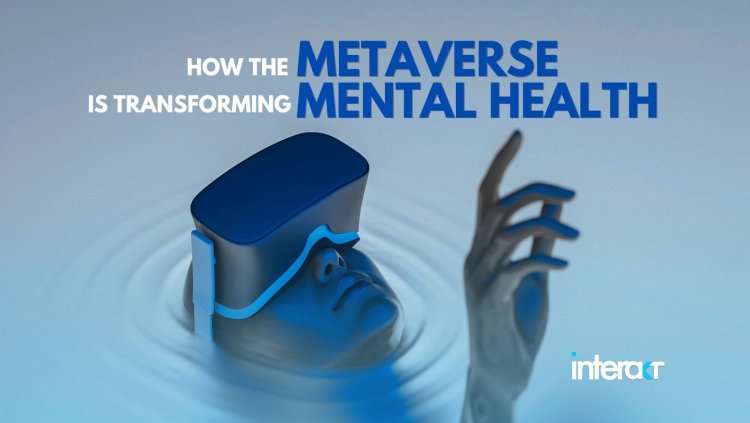Metaverse Metamorphosis: How Virtual Realities are Revolutionizing Mental Health
Explore the impact of the Metaverse on mental health. Discover how VR simulations and virtual clinics are changing the landscape of mental healthcare.

In a rapidly evolving world where the boundaries between the physical and digital realms continue to blur, one groundbreaking development is taking center stage - the Metaverse. This digital frontier is not just about gaming and virtual socializing; it's also poised to transform the way we approach mental health
VR Simulations in Mental Health
Imagine being able to step into a world where complex real-life situations, often impossible to recreate in person, become accessible. That's precisely what Virtual Reality (VR) simulations bring to the table.
- Real-Life Replication: VR simulations are exceptional in their ability to recreate intricate real-life scenarios, bridging the gap between theory and practice. This capability holds immense promise for mental health professionals striving to understand and address complex conditions.
- Diagnosis and Treatment: VR-based tools are becoming instrumental in diagnosing and treating a wide range of mental health issues. Conditions such as Attention Deficit Hyperactivity Disorder (ADHD), anxiety, post-traumatic stress disorder (PTSD), autism, eating disorders, Alzheimer's disease, stress management, and even delusions, psychosis, and schizophrenia are now being addressed through the immersive power of VR.
Virtual Clinics in the Metaverse
The Metaverse isn't just a playground for tech enthusiasts; it's rapidly evolving into a realm where mental health services can thrive.
- Accessibility: The introduction of virtual clinics allows patients to seek consultations with mental health professionals in the virtual realm. This groundbreaking shift enhances accessibility to vital mental health services, breaking down geographical barriers and time constraints.
- Government Initiatives: Forward-thinking governments worldwide are proactively establishing VR counseling and therapy associations within the metaverse. These initiatives are designed to ensure widespread access to mental healthcare services, further democratizing mental health support.
- Inclusivity and Anonymity: Virtual clinics offer a lifeline to individuals facing limitations due to disabilities, geographical constraints, or time limitations. Additionally, they provide a safe haven for those who seek anonymity, given the lingering stigma attached to mental health issues.
Mimic Community and Wellbeing Spaces
The Metaverse is not merely a space for solitary experiences; it's a thriving digital community.
- Digital Community: In this digital realm, individuals can forge connections, socialize, and maintain relationships, all within a virtual landscape. It offers a profound sense of belonging, making it an ideal environment for individuals seeking to combat isolation.
- Group Therapy: Mental health spaces within the metaverse host group therapy sessions, some of which are led by professionals. These sessions offer invaluable support, understanding, and a sense of community, combating the isolation that often accompanies mental health struggles.
- Mindfulness and Self-Care: Beyond therapy, immersive metaverse environments empower individuals to practice mindfulness, meditation, yoga, and various self-care techniques. This encourages mental well-being and resilience, further enriching the metaverse experience.
The Metaverse's potential to reshape mental health is nothing short of revolutionary. It offers new avenues for diagnosis, treatment, support, and personal growth, blurring the lines between the digital and the human experience. As we step further into this digital frontier, we're bound to witness remarkable transformations in the way we perceive and address mental health challenges. The metamorphosis has begun, and it holds the promise of a brighter, more inclusive future for mental health.







